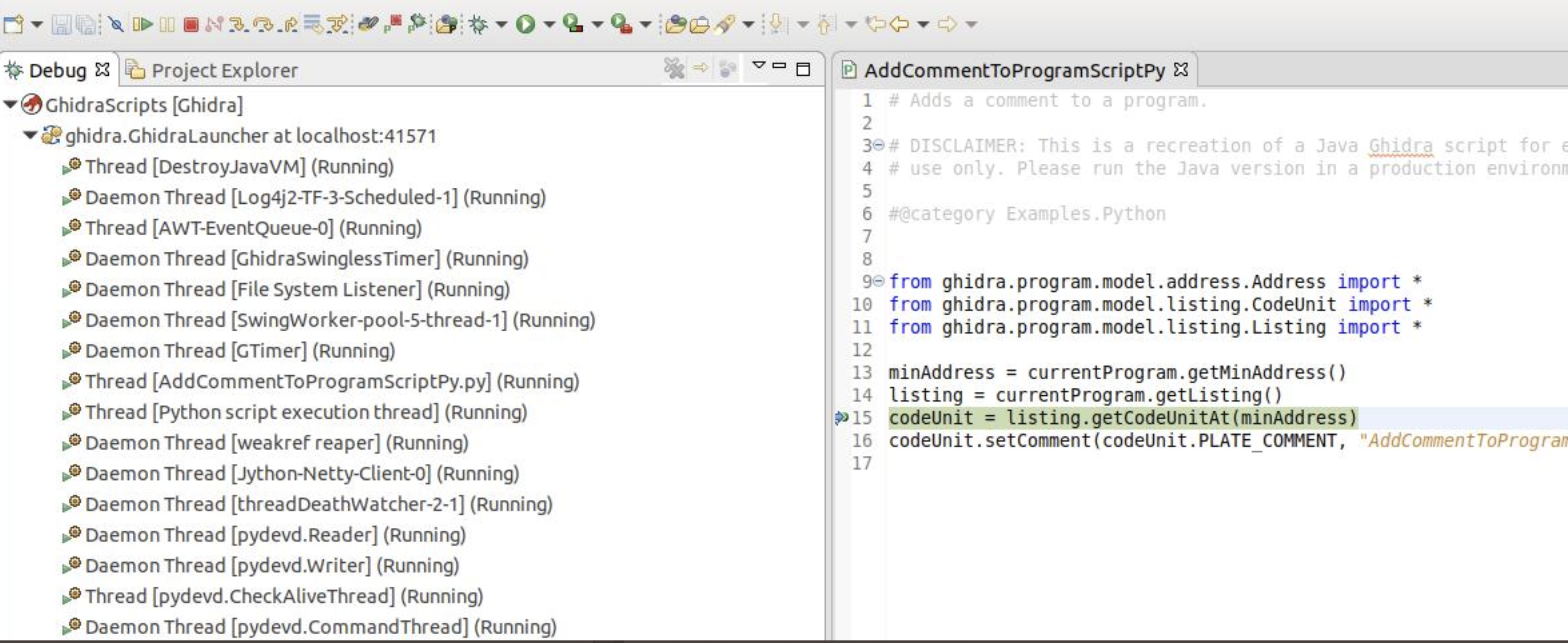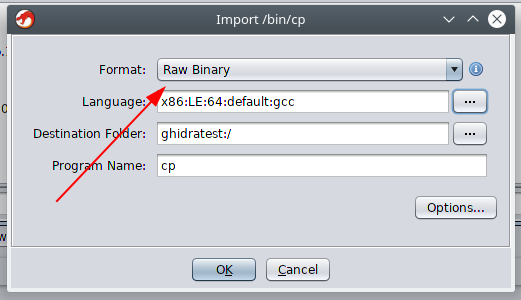Ghidra Software Reverse Engineering Framework
Ghidra is a software reverse engineering (SRE) framework created and maintained by the National Security Agency Research Directorate. This framework includes a suite of full-featured, high-end software analysis tools that enable users to analyze compiled code on a variety of platforms including Windows, macOS, and Linux. Capabilities include disassembly, assembly, decompilation, graphing, and scripting, along with hundreds of other features. Ghidra supports a wide variety of processor instruction sets and executable formats and can be run in both user-interactive and automated modes. Users may also develop their own Ghidra extension components and/or scripts using Java or Python.
In support of NSA's Cybersecurity mission, Ghidra was built to solve scaling and teaming problems on complex SRE efforts, and to provide a customizable and extensible SRE research platform. NSA has applied Ghidra SRE capabilities to a variety of problems that involve analyzing malicious code and generating deep insights for SRE analysts who seek a better understanding of potential vulnerabilities in networks and systems.
If you are a U.S. citizen interested in projects like this, to develop Ghidra and other cybersecurity tools for NSA to help protect our nation and its allies, consider applying for a career with us.
Security Warning
WARNING: There are known security vulnerabilities within certain versions of Ghidra. Before proceeding, please read through Ghidra's Security Advisories for a better understanding of how you might be impacted.
Install
To install an official pre-built multi-platform Ghidra release:
- Install JDK 11 64-bit
- Download a Ghidra release file
- Extract the Ghidra release file
- Launch Ghidra:
./ghidraRun(orghidraRun.batfor Windows)
For additional information and troubleshooting tips about installing and running a Ghidra release, please refer to docs/InstallationGuide.html which can be found in your extracted Ghidra release directory.
Build
To create the latest development build for your platform from this source repository:
Install build tools:
- JDK 11 64-bit
- Gradle 6.4+ or 7.x
- make, gcc, and g++ (Linux/macOS-only)
- Microsoft Visual Studio (Windows-only)
Download and extract the source:
$ unzip ghidra-master
$ cd ghidra-master
NOTE: Instead of downloading the compressed source, you may instead want to clone the GitHub repository: git clone https://github.com/NationalSecurityAgency/ghidra.git
Download additional build dependencies into source repository:
$ gradle -I gradle/support/fetchDependencies.gradle init
Create development build:
$ gradle buildGhidra
The compressed development build will be located at build/dist/.
For more detailed information on building Ghidra, please read the Developer Guide.
Develop
User Scripts and Extensions
Ghidra installations support users writing custom scripts and extensions via the GhidraDev plugin for Eclipse. The plugin and its corresponding instructions can be found within a Ghidra release at Extensions/Eclipse/GhidraDev/.
Advanced Development
To develop the Ghidra tool itself, it is highly recommended to use Eclipse, which the Ghidra development process has been highly customized for.
Install build and development tools:
- Follow the above build instructions so the build completes without errors
- Install Eclipse IDE for Java Developers
Prepare the development environment:
$ gradle prepdev eclipse buildNatives
Import Ghidra projects into Eclipse:
- File -> Import...
- General | Existing Projects into Workspace
- Select root directory to be your downloaded or cloned ghidra source repository
- Check Search for nested projects
- Click Finish
When Eclipse finishes building the projects, Ghidra can be launched and debugged with the provided Ghidra Eclipse run configuration.
For more detailed information on developing Ghidra, please read the Developer Guide.
Contribute
If you would like to contribute bug fixes, improvements, and new features back to Ghidra, please take a look at our Contributor Guide to see how you can participate in this open source project.

 After I clicked the right button a lot of times (when I was writing this to get an image) it changed to:
After I clicked the right button a lot of times (when I was writing this to get an image) it changed to:

 I think that missing
I think that missing 


 Import as Raw binary:
Import as Raw binary:


